Advertisement
Young cast brings authentic accents to ‘Kufre N’ Quay’

At home, Levi Mngomezulu practices his accent for the performance nearly every day. He’s 11 and is making his professional debut as part of Mfoniso Udofia’s latest production, “Kufre N’ Quay.” He plays Kufre Ekpeyong, a shy boy who moves to New York from Nigeria. Levi’s dad, who is from Eswatini, has been helping him prepare.
“At home I love to speak in an Ibibio accent,” Mngomezulu said. “My dad, he's from Eswatini — and he does a great Ibibio accent. We've just been talking together, and it's been really nice.”
Language and dialect play a key role in the Ufot Family Cycle, a series of plays about one family’s Nigerian-American experience across several generations. Levi slips into character, reciting his lines, and his voice becomes higher. He tries to make his accent sound seamless, something also learned throughout careful work with coaches.
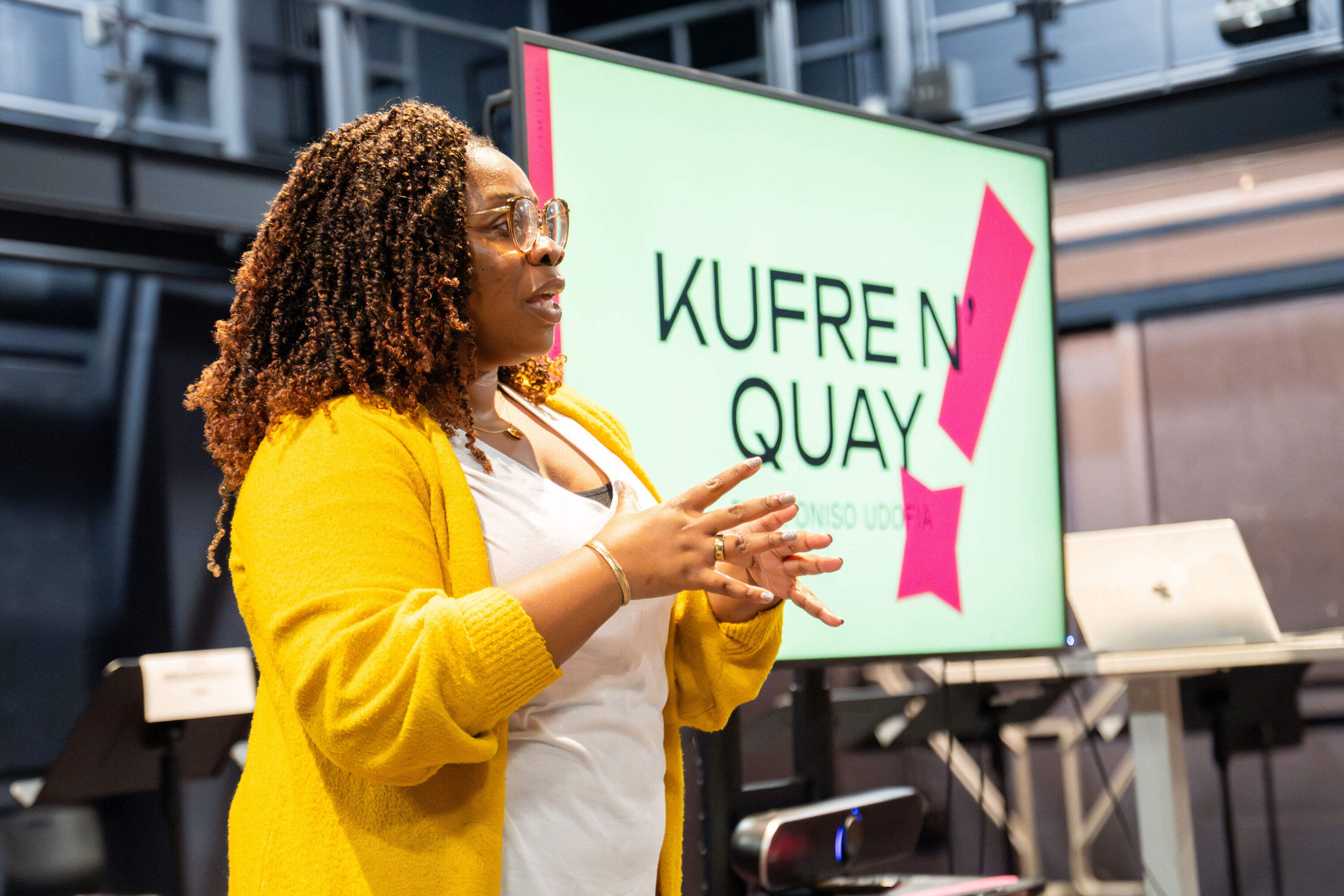
“My role is to help them find comfort, spontaneity, and clarity with languages and dialects that for the most part, people are not familiar with,” said Lee Nishri-Howitt, a dialect coach at Boston Arts Academy.
“There's a fear of, ‘am I doing it correctly?’ which sometimes is exactly the thing that prevents you from actually just letting it go and doing it,” he said. “The point of accent work is to find nuance through language and through accent, because it tells a story of a people, of a place, of a time.”
"Kufre N’ Quay" is the fifth of nine shows Udofia is writing for the cycle. The play is a coming-of-age story and opens with a dream. Kufre imagines all the friends he will soon make in America. In his dream they already know his name. The next day, the reality of fitting in is very different.
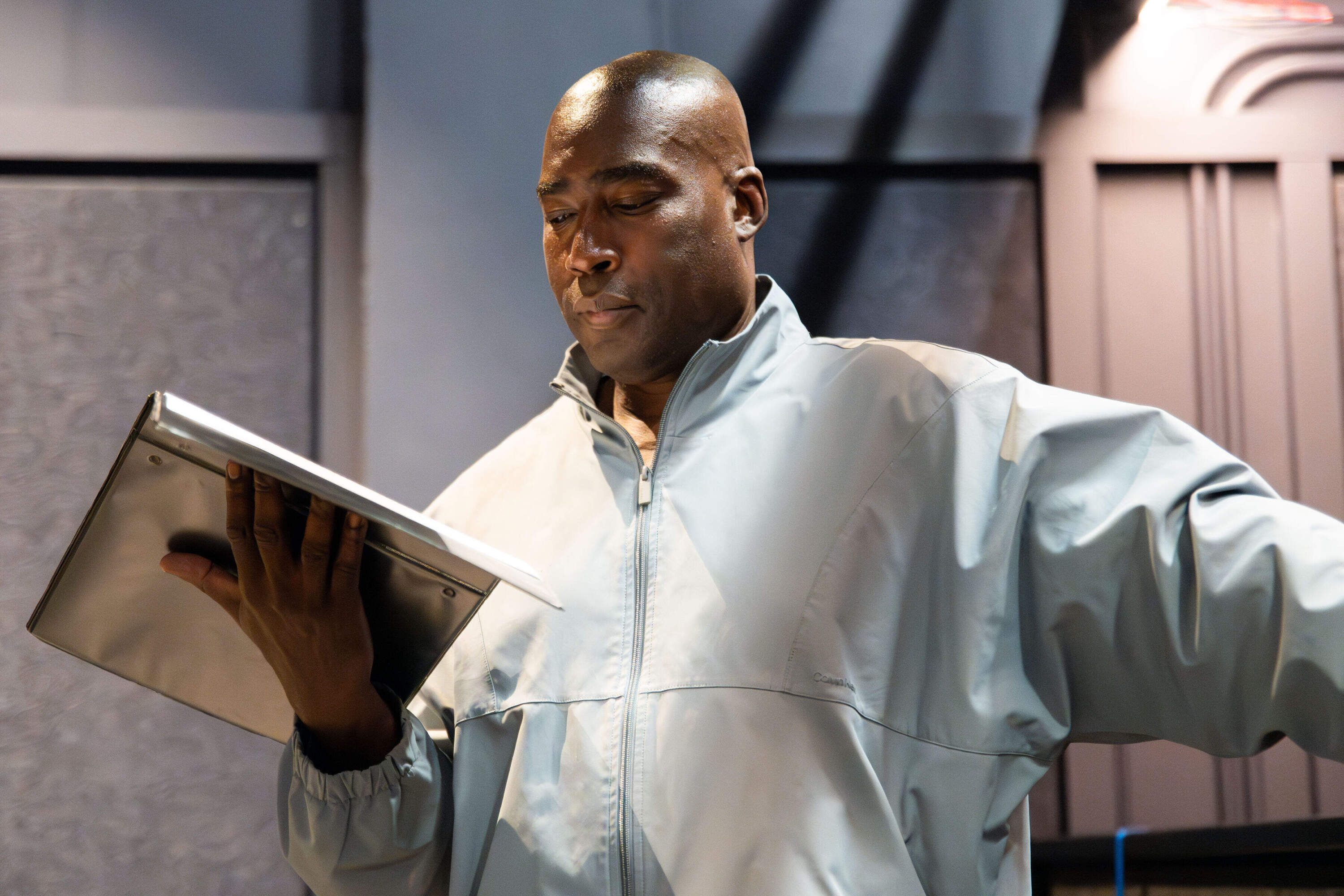
“Belonging is a journey,” said the show’s director John Oluwole ADEkoje, who is also a faculty member at BAA and an award-winning Nigerian filmmaker, actor, and playwright. “Kufre thinks he has an understanding of what America is and then becomes othered. But within that, he begins to learn what America really is about, and then finds a new community. And so now he has Nigeria, and he has America, at the same time.”
It’s a kind of Tower of Babel moment inside the youth center with groups dividing into silos playing basketball, watching music videos and struggling to find common ground.
It’s up to their counselor to bring them together through art. Jalyse Ware, plays the ever confident Ms. Ey Yo Miss. Ware is a Huntington Education Department teaching artist and also goes by her hip-hop name, Cake Swagg.
“ My character's motivation is really just to create a safe space for a bunch of youth from different diasporas who are all coming to the discovery zone for their summer,” Ware said. “ I started thinking about the faculty in my own life that made me feel safe that made me feel seen and I wanted to recreate that.”
Advertisement
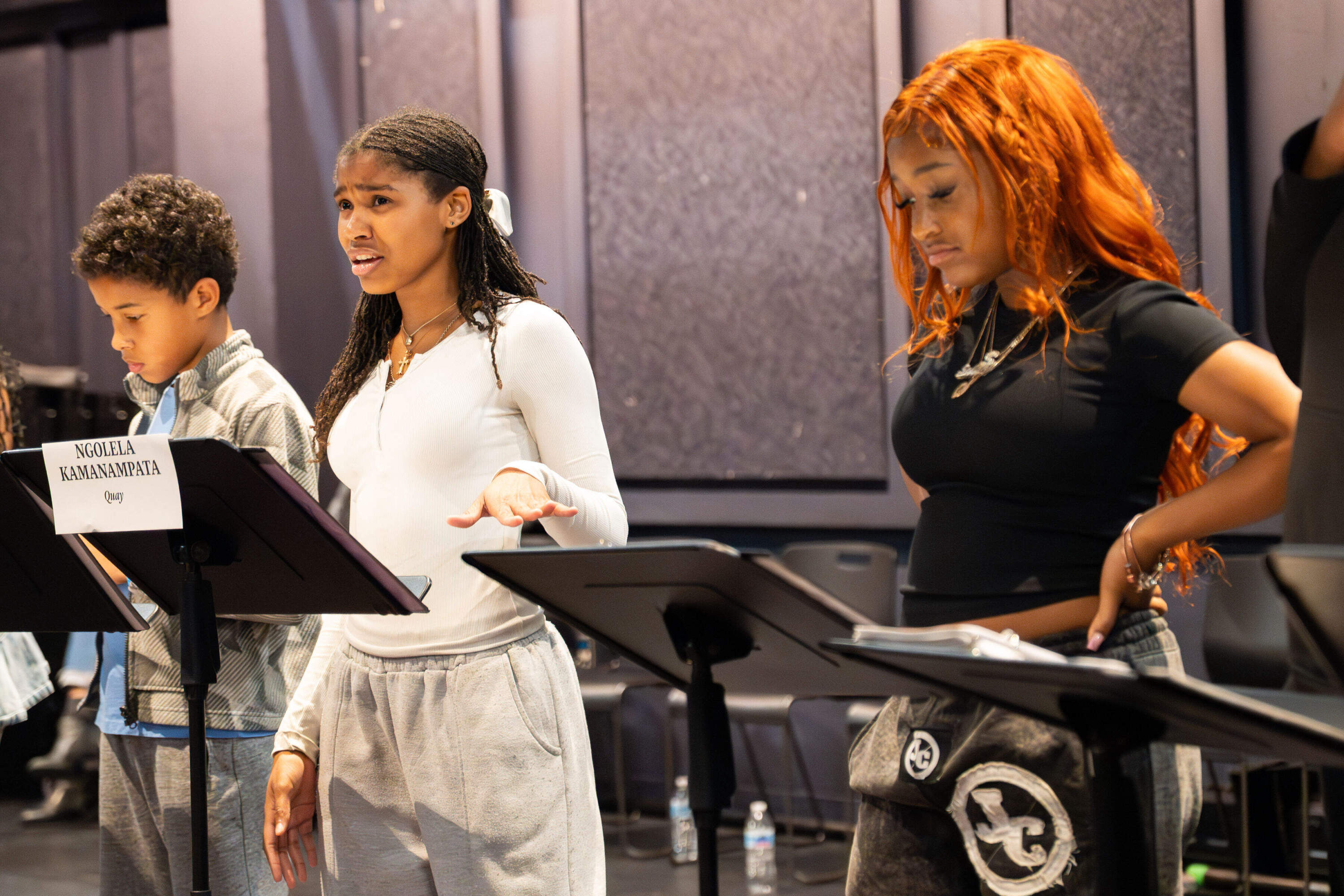
Ngolela Kamanampata, 15, plays the show’s other lead, Laquasha “Quay” Price.
“I think it's with anything, it just takes time,” Kamanampata said. “We all have to do a New York accent. So we would get an example of a sentence. It'd be like, ‘Sarah bought a new Canada goose puffa jacket’ and we have to keep doing the accent…It’s the musicality and rhythm. Once you get that down, it really starts to become more natural.”
Her family is Congolese so the experience of growing up between cultures really hit home. It reminded her of experiences her own father and his siblings lived.
“I just really want people to understand that these aren't just stories that we're telling,” Kamanampata said. “These are true projections of people's lives, and it means the world to people that we are able to express our story.”
The cast is meant to be as diverse as New York City, with characters from Senegal, Haiti, and the Dominican Republic. Languages such as Spanish, French, and the West African language of Wolof are also sprinkled in.
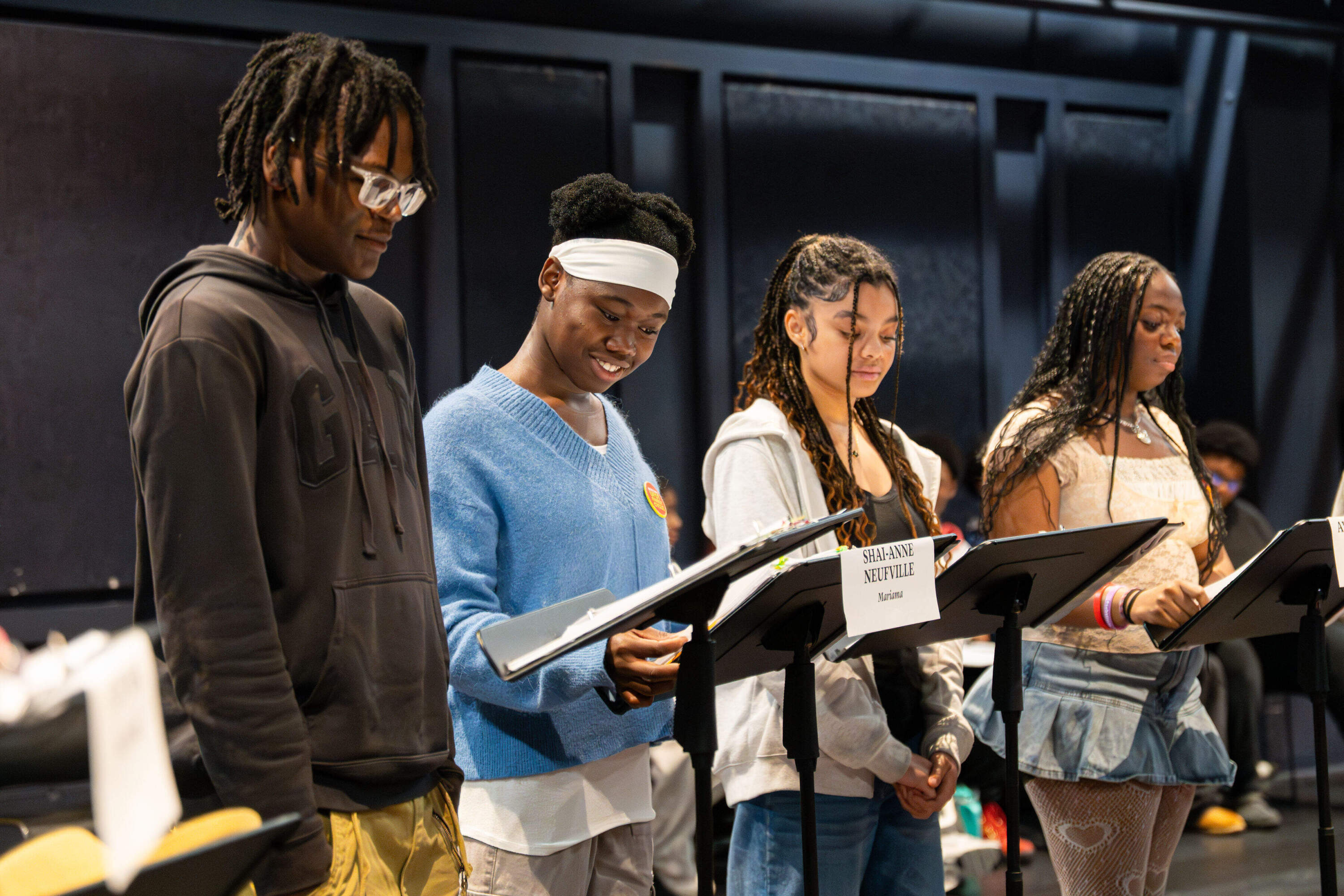
Wolof is one of the three languages Ayannah Joseph speaks throughout the play. Her character is a bully, but her life is complex. She has a lot going on at home. Joseph found a documentary featuring people from New York with thick accents. She made a point to study their posture, how their mouths and jaw move and how they articulate.
“You have to also focus on the intention of how you’re saying that specific line,” Joseph said. “Because obviously if you were to forget that line, you can't improv because you don't know the language.”
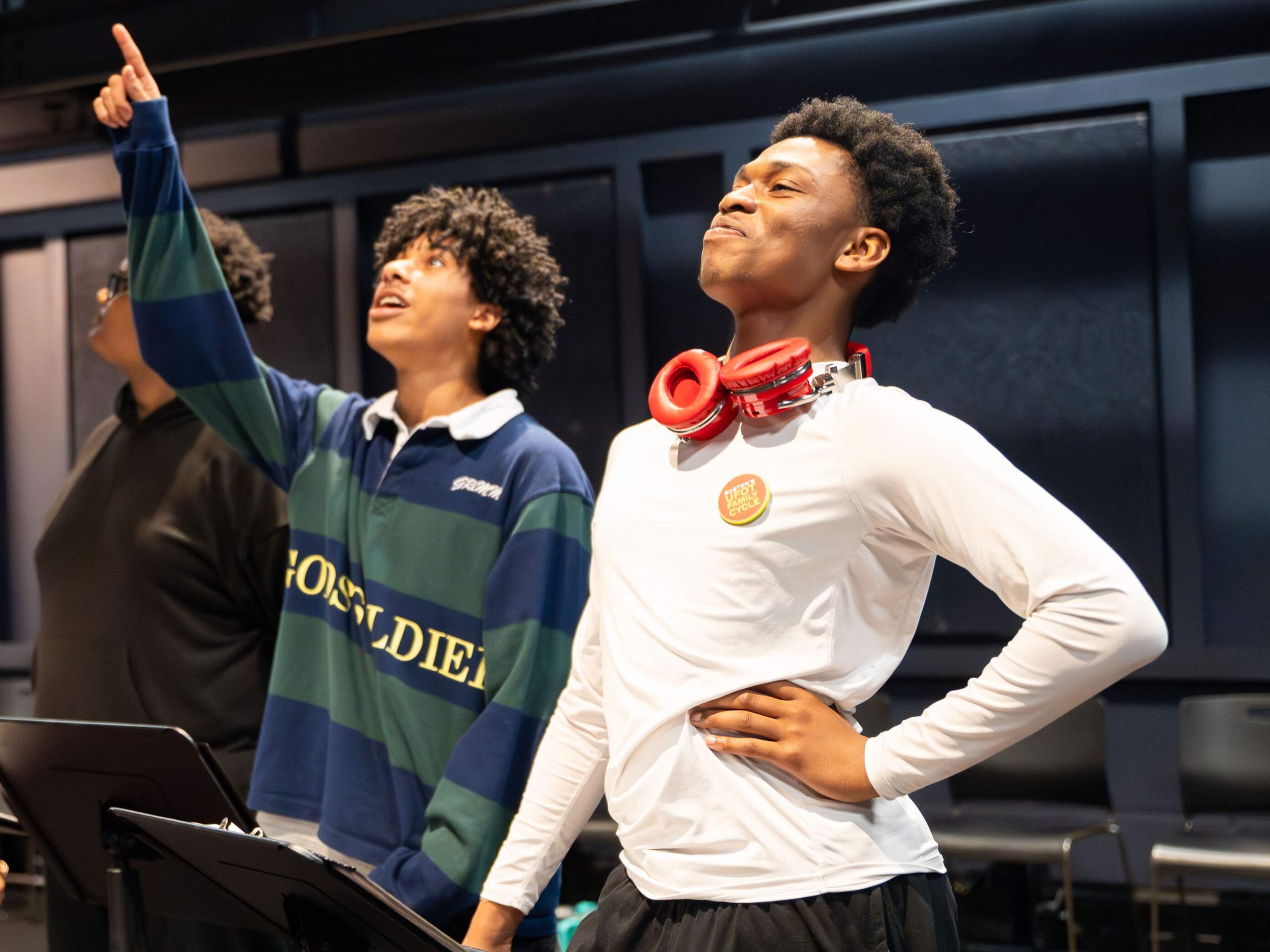
During a recent rehearsal, actors practiced Pidgin, a blend of Nigerian languages with English. Emmanuel Eshiett is a scientist by day who, so far, has worked on every performance of the Ufot Cycle to make sure the actors speaking Ibibio are as precise as possible. This tonal language from Nigeria is found in every play.
“To be teaching Ibibio is also really dear to my heart, because it's also one of the minority languages in Nigeria,” Eshiett said. “It's not one of the big ones. There's the big three, Igbo Hausa and Yoruba, and Ibibio is one of the smaller ones.”
The language is a character all its own in the world Udofia builds. The tones need to be just right otherwise it changes the entire meaning of the word.
“Kufre N’ Quay” runs through July 26 at Boston Arts Academy.
This segment aired on July 11, 2025.
